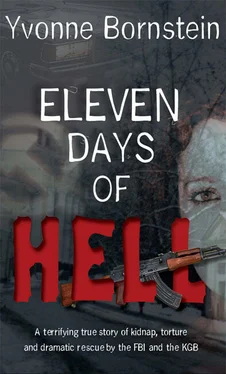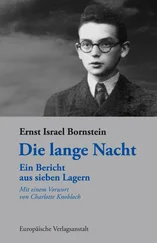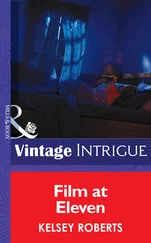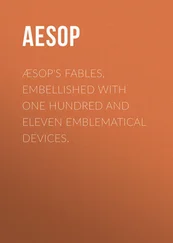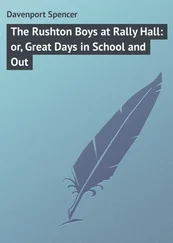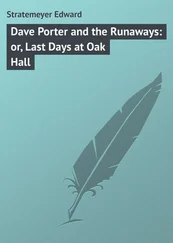As it happened, Danny and I didn’t have to put in any legwork to expand the Weinstock brand name onto a global stage. The vehicle for doing that literally walked right into our office.
In the winter of 1988, a mysterious and nervy stranger named Matthew Hurd ambled unannounced through the door of National Computer Services and began pitching a ‘can’t-miss’ business proposition. Normally, we would have been wary of someone coming in off the street like this, figuring he was either a huckster or a leech. However, I became intrigued with the guy’s chutzpah and with his spiel about the lucrative potential of something called barter trade.
An Australian with strong community ties, Hurd was forty-eight, short and stumpy, and though he fairly burned with ambition and ideas, he had a soothing, unassuming manner that went a long way towards easing our minds about this murky business. Matthew seemed eminently credible. He explained that he had gone to Moscow during the 1980 Olympics and had seen how some daring Western businessmen had made a fortune doing business with Iron Curtain and Third World countries.
The game, as Matthew explained it, worked like an endless carousel ride that began and ended in Russia, where quality consumer goods are so meager that black-market merchants would be willing and able to pillage the country’s natural resources to get their hands on them. That set off a chain reaction of movement. Other countries, large and small, industrial or Third World, Asian or East European, craved those resources—items like copper, tin, aluminium, steel, even fertiliser—and they would buy those Russian goods, sight-unseen, for obscene amounts of money. And we, as the barter trade agents, would make a killing.
What would the Russians want from these deals? Here’s the beautiful part. They wanted not one cent. All they wanted were those hard-to-come-by goods—basic essentials such as shoes, clothing, and food; high-tech electronics items like computers and peripherals, televisions, stereos, and copying machines; and sturdy vehicles like automobiles and trucks. With the money we would rake in from the sale of their goods, we’d buy these items wholesale in the Western parts of the world and drop-ship them back to our partners in Russia. The amount of money that accrued from these global deals could stretch into the millions, Matthew said, if one had the stomach to pursue it, not merely half-heartedly but with a commitment to people who knew the game inside out. People like him, for one.
‘Put yourself in my hands,’ he said, ‘and it’ll be like writing whatever number you want on a blank cheque.’ It was a statement that would, in time, prove to be wickedly ironic.
Our first question was whether such trading with Iron Curtain countries was entirely legal. As Matthew explained it, the answer was yes, no, and maybe. Within the Soviet Union, it was perfectly legal, then and now. However, in the West, barter trade lies in a gray area, caught in a bind between free trade and private profiteering, the latter of which is acceptable only if the goods being marketed can in any way be construed as having any non-military use—including weapons or high-tech items such as encryption devices and some software applications. In Australia, for instance, such commerce in the late 1980s was enjoined by the Coordinating Committee on Multilateral Export Controls (COCOM), which was based in Paris and had been used for over a decade as a US tool to prevent worldwide distribution of encryption.
(COCOM was officially dissolved in 1994, but many of the rules today remain intact under the Wassenaar [The Hague] Arrangement on Export Controls for Conventional Arms and Dual-Use Goods and Technologies.) In fact, as you will see, Danny and I would run afoul of COCOM, nearly ruining one particularly lucrative deal.
Moreover, Western governments for political and propagandistic reasons implicitly frowned upon carrying on freelance commerce with the Iron Curtain countries. Those concerns, however, hardly resonated with capitalism-driven Western businessmen. Far more important, barter trade was not a business for the faint of heart. For one thing, because it was done in the shadows, unregulated by any national or international trade agency, agreements and contracts were only as good as the word of your trading partners—who, working within a tapestry of subcontracted middlemen, you rarely ever saw and who worked exclusively on handshake deals. You had to hope no one turned out to be a crook looking to rip you off or, worse, try to hold you up. If they did, deals could collapse, and hundreds of thousands of dollars could be lost.
In business terms, it doesn’t get any riskier than that.
Even so, the risk was well worth it, and has been since the earliest expeditions to Asia by Portuguese ships in the early 1500s, trading opium to the Chinese for silks. All kinds of fortunes were made when an ensuing opium-smoking plague swept through Asia. In modern times, it wasn’t opium that stoked the barter trader game, but rather things that are taken completely for granted in the West. You can get the idea by recalling the constant toilet-paper shortages in the Soviet Union, which on the black market was like solid gold on a roll.
Make no mistake. There were plenty of capitalists behind the Iron Curtain, and they took no chances in beating out the competition. Most black-market businessmen were aided and abetted by the Russian Mafia—which is not quite like the Sicilian Mafia, at least not before the fall of Communism. In the old Soviet Union, ironically enough given the ham-fisted ways of the Communist regimes, the Mafia wasn’t absorbed with beating or murdering people. It was all about business, the expediting of deals.
Having these kinds of ‘business partners’ would not, Danny and I knew, win us any awards from the Australian Chamber of Commerce. But it might win us the dolce vita we wanted. For a woman in particular, this was an unlikely career choice, to say the least. Very few women were involved in barter trade, which scared away numerous macho men as well. But for me and Danny, it was a no-brainer. We liked the scent of international wheeling and dealing. We liked the scent of danger, too, though we could hardly imagine a scenario whereby we would be in any great physical danger and had not heard of any barter trade merchant’s body washing up ashore lately. Most of all, we loved the scent of money.
And so we moved fast, very fast. Anticipating a hydra-headed empire, we moved into a plush, 8000-square-foot office on Claremont Street in the South Yarra business district, which would now house both National Computer Services and the still-forming new business, which we named Video Technology Ltd.
In getting Video Technology off the ground, we gave the big-talking Matthew Hurd free reign, as he had proven he had considerable and reliable business contacts in the Soviet Union.
‘You two just sit back; let me handle everything on the Russian side,’ he told us, cocky to no end.
And he did. While Danny and I concentrated on National Computer Services matters, Matthew drew up contracts and put together joint ventures with parties all around Russia. With a Russian confidante named Grigory Miasnikov, he quickly created four of these joint ventures we could partner up with, all based in Moscow. The first, of which Miasnikov was general director, was called SovAustralTechnicka, so named because in exchange for scoring up the resource goods, we would deliver to it electronic and computer goods.
For a while, we were kept at a distance from Grigory, hearing of him only from Matthew. We wanted no particular social relationship with the Russians, merely a business one. All we really cared about was that men like this could make us money, big money. Grigory, we were told, was valuable because in Moscow’s underground circles he was known to be a ‘fixer,’—that is, he could make good things happen and problems go away. How he did it, I told myself, was his affair, and his alone.
Читать дальше
